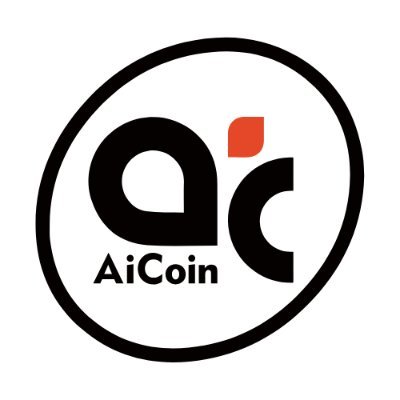Ignore Tariff Noise: Pal & Coutts Point to Liquidity as the Key Bitcoin Driver
Blockchain analysts Raoul Pal and Jamie Coutts remain bullish on Bitcoin and crypto prices long-term, citing prevailing liquidity conditions, even as geopolitical and socioeconomic decisions, like the recent Trump tariffs, trigger short-term volatility.
In a recent podcast , Pal highlighted liquidity’s influence, noting digital assets like Bitcoin aligned with changing liquidity trends over the past three months.
While acknowledging the impact of Trump’s tariff decisions on recent price action, Pal believes liquidity variations since late last year have played a more fundamental market role.
Pal noted financial conditions are easing quickly, a development he thinks favors bullish outcomes for crypto. Comparing Bitcoin’s performance to mainstream stocks, he cited the digital asset’s leadership role in the current market cycle.
Related: Trump Says ‘Boom’, Market Proves ‘Bust’: Tariffs Cause Massive Sell-Off
Real Vision’s Chief Crypto Analyst, Jamie Coutts, agreed with Pal’s explanation regarding liquidity’s influence. However, Coutts stressed the unpredictability of how the Trump administration’s tariff policies could play out. He argued the tariff fallout pressures the Federal Reserve to act, potentially warranting a swift response from asset prices.
Coutts theorized the ripple effect from tariffs could trigger a growth shock requiring subsequent stimulus, cascading into a bullish phase for risk assets like Bitcoin and cryptocurrencies. He did, however, acknowledge potential for surprising short-term price action and uncertainty, as other macro policies could influence trends.
Coutts compared Bitcoin investment to “playing a probability game with the central banks.”
Related: Bitcoin’s Trump Tariff Test: Down to $82k, Can $78k Support Endure?
He suggested that while long-term expectations based on macro conditions are relatively clear, investors must endure potential short-term volatility driven by specific events to achieve long-term goals.
Disclaimer: The information presented in this article is for informational and educational purposes only. The article does not constitute financial advice or advice of any kind. Coin Edition is not responsible for any losses incurred as a result of the utilization of content, products, or services mentioned. Readers are advised to exercise caution before taking any action related to the company.
Sentient Co-Founder: Decentralized AI Crucial for Achieving Artificial General Intelligence
The artificial intelligence (AI) industry, riding a wave of unprecedented growth and innovation, is now setting its sights on the next frontier: artificial general intelligence (AGI). While recent capital raises by prominent AI startups, such as Anthropic’s multi-billion dollar funding rounds and Mistral AI’s rapid ascent to unicorn status, highlight immense investor confidence in the current trajectory of AI, experts believe the field’s true potential has yet to be fully realized.
Himanshu Tyagi, co-founder of Sentient and a professor at the Indian Institute of Science, argues that the path to AGI lies in embracing decentralized AI. Addressing the challenges of developing AI capable of human-level reasoning and task completion, Tyagi emphasized the need for “completely new data on human strategies and specialized models trained on this data.”
He contends that the data required for building AGI goes beyond readily available information found on the internet. Instead, it encompasses “deeper heuristics and strategies that humans use for different tasks,” such as complex sales techniques or innovative brand design. This data, often rooted in strategic competitions like technical interviews, presents a significant collection challenge. “If we choose centralized silos to collect this data, it will be of limited utility,” Tyagi stated, advocating for “decentralized, open, and incentivized mechanisms” to gather truly valuable data.
The challenges extend to model development, where Tyagi emphasizes the need for “people to freely contribute their trained models with specific skills and alignment.” He also points out the necessity of providing “compute resources at Google scale for training their models.” According to Tyagi, “decentralized model ownership with incentives and decentralized training solves these problems.”
The push for decentralized AI is gaining momentum as the industry grapples with the limitations of centralized data and model development. With AGI representing the next major leap in AI evolution, the ability to harness diverse human intelligence and collaborative model training could prove pivotal.
Tyagi’s insights, shared with Bitcoin.com News, suggest that the future of AGI may not be built in the closed labs of tech giants but rather through a collaborative, decentralized ecosystem. This vision aligns with the broader trend of decentralization across various industries, where community-driven innovation is increasingly seen as a powerful catalyst for progress. As AI continues to evolve, the role of decentralized platforms in shaping its future remains a critical area of exploration.
Meanwhile, the Sentient co-founder argues that building the next generation of AI, particularly solutions aimed at achieving AGI, is a complex undertaking rife with challenges and requiring a nuanced approach. He warns young developers about the “great initial optimism” that often accompanies building AI applications, emphasizing that the journey from proof of concept to a stable, scalable product is fraught with complexities.
Large language models (LLMs), while powerful, introduce errors and vulnerabilities, including hallucinations, factuality issues, and potential security risks. Addressing these challenges, he says, demands a new software layer and specialized model training—capabilities that early-stage teams may lack.
His advice is to “sharply focus on their specific use case and rely on external offerings for resolving these issues.” Sentient Chat, he highlights, is designed to provide such services, offering AI search APIs, hosted models, agentic frameworks, and Trusted Execution Environment (TEE) libraries as accessible tools for agent builders. Notably, Sentient’s models are tailored for specific use cases and communities and are open-source, allowing developers to understand their functionality and avoid vendor lock-in.
Sentient’s vision extends beyond just providing tools. It aims to foster a “collective agentic intelligence offering” for AI users, contributing to the broader goal of building an ecosystem for truly open AGI. This commitment to open-source models and frameworks aligns with the growing emphasis on decentralized AI, where collaborative development and community-driven innovation are seen as crucial for unlocking the full potential of AGI.
In addition to providing tools for agent builders, Sentient Chat is positioning itself as a challenger to traditional search engines by building a community-owned AI chatbot, Tyagi disclosed. This approach, he argues, offers a significant advantage over existing models that primarily focus on information retrieval.
Tyagi explained that while Google has dominated search for decades, its model is fundamentally limited to finding information on the internet. “Given how Google makes most of its revenue from advertisements through recommending sources for this information, it will be very hard for Google to move away from this,” he stated. However, he believes AI presents an opportunity to transcend this limitation.
“We can simply get things done directly instead of gathering information first, analyzing it, and then taking action,” Tyagi said. To achieve this, Sentient Chat is building an ecosystem of AI agents powered by diverse data sources and contributions from a community of developers.
“To realize this crazy future, we need many varied sources of indexed data and many builders to offer agents that take the final action,” Tyagi emphasized. This requires a transparent, open ecosystem where data providers and agent builders are incentivized to participate, all under community governance.
The co-founder outlined the importance of data providers understanding the value their data brings to the platform and agent builders being able to seamlessly integrate and offer various services. This community-governed approach is crucial for fostering innovation and creating a more dynamic and action-oriented search experience, he argues.
Tyagi also hinted at the rapid expansion of Sentient Chat’s capabilities, stating, “By the way, there are much more than 15 agents coming on Sentient Chat!” This suggests a growing platform with increasing functionality and a commitment to empowering its community of users and developers.
In essence, Sentient Chat aims to move beyond traditional search by building a collaborative, community-driven platform that enables users to directly accomplish tasks through AI agents, potentially disrupting the current search paradigm.
免责声明:本文章仅代表作者个人观点,不代表本平台的立场和观点。本文章仅供信息分享,不构成对任何人的任何投资建议。用户与作者之间的任何争议,与本平台无关。如网页中刊载的文章或图片涉及侵权,请提供相关的权利证明和身份证明发送邮件到support@aicoin.com,本平台相关工作人员将会进行核查。
Compound Adopts Uniswap-Style Governance with New Foundation
Compound’s Uniswap-style governance foundation aims to boost decentralization, legal clarity, and long-term protocol sustainability.
Market optimism follows COMP’s governance news, while UNI’s price reflects the volatility of DeFi and its evolving governance impact.
Compound Finance, a prominent decentralized finance ( DeFi ) lending protocol on Ethereum, is exploring the establishment of a dedicated foundation to enhance its governance and operational efficiency.
As described in a recent CNF coverage, Uniswap’s model is referenced as a successful blueprint—where the UNI governance token enables holders to participate in protocol decisions and access various DeFi applications.
This initiative aims to emulate the effective structure implemented by the Uniswap Foundation, fostering a more organized and decentralized ecosystem.
In a recent announcement, Compound Labs emphasized the evolving needs of the protocol, noting the importance of a stable structure to support ongoing decentralization. The development of Compound v4 and growing community involvement have reinforced the necessity of a formal entity to coordinate initiatives and ensure legal clarity.
According to recent reports, the proposed foundation takes inspiration from the Uniswap Foundation, which has played a crucial role in Uniswap’s decentralized growth and governance.
Uniswap’s framework allows UNI token holders to propose, vote on, and execute changes to the protocol—a model that has enabled community-driven innovation. As described by ETHGlobal:
Uniswap is the most renowned decentralized exchange (DEX) in the world, built on the Ethereum network. The revolutionary platform has transformed the way digital assets are traded, allowing users to swap tokens without the need for intermediaries or centralized exchanges.
Compound Labs plans to involve the community in conversations about the proposed foundation, encouraging feedback and active collaboration. This participatory strategy ensures the foundation’s structure aligns with the vision of COMP token holders and broader stakeholders.
The announcement has generated positive momentum in the market, with COMP’s price seeing notable gains following the news. In another CNF report , both Uniswap and Compound were noted as top-performing DeFi assets approaching new all-time highs.
Compound’s move toward a Uniswap-style foundation signals a significant step forward in its governance model, reinforcing its long-term strategy for sustainable, decentralized growth.
At the time of writing, Uniswap’s UNI token is trading at $5.98 USD, reflecting a 0.72% decrease in the past 24 hoursand a 13.22% drop over the past week. These fluctuations highlight the dynamic nature of the DeFi space and the impact of governance shifts on token performance.
Bitcoin: Arthur Hayes Predicts A Price Of $250,000 By 2025
The co-founder of BitMEX, Arthur Hayes, makes a bold prediction: the price of Bitcoin could surpass $250,000 by the end of 2025. This analysis is based on recent adjustments to monetary policy that could spur strong demand for the leading cryptocurrency.
Arthur Hayes’ recent analysis is sure to catch the attention of many crypto market observers. According to him, the BTC price could reach $250,000 by the end of 2025 if the FED decides to pivot towards a quantitative easing (QE) policy.
Specifically, Hayes bases this crypto prediction on the idea that the value of Bitcoin is heavily influenced by market expectations regarding the future supply of fiat currency.
Analysis: If the FED increases the supply of dollars by adopting QE, demand for alternative assets like Bitcoin could rise due to the perceived devaluation of traditional currency.
The latest actions by the FED are already showing signs of such a pivot. On April 1, it reduced the capacity for Treasury bond reductions from $25 billion to only $5 billion per month. According to Hayes, this decision marks the beginning of a bullish cycle for crypto assets.
Having reached a local low of $76,500 last month, Bitcoin could indeed start its surge towards $250,000.
Not all expert crypto analysts share Arthur Hayes’ optimistic vision . Jamie Coutts from Real Vision estimates, for example, that Bitcoin would hit a peak of $132,000 by the end of 2025. These projections are more conservative. They take into account current market trends, suggesting a less drastic impact of monetary policy on BTC’s price.
But that’s not all! According to data from Polymarket , only 9% of traders are betting on a Bitcoin at $250,000. The majority (at 60%) believe that the price of the flagship cryptocurrency will stabilize around $110,000 in 2025. This sentiment reflects hesitation about the extent of the expected rally for BTC.
While Hayes’ prediction is ambitious, it highlights the importance of monetary policy in determining the price of Bitcoin. Investors will need to closely monitor the FED’s decisions as well as the evolution of the global economy. These could redefine the trajectories of cryptocurrencies in the long term.


 Niedrigster Preis
Niedrigster Preis Höchster Preis
Höchster Preis 












































